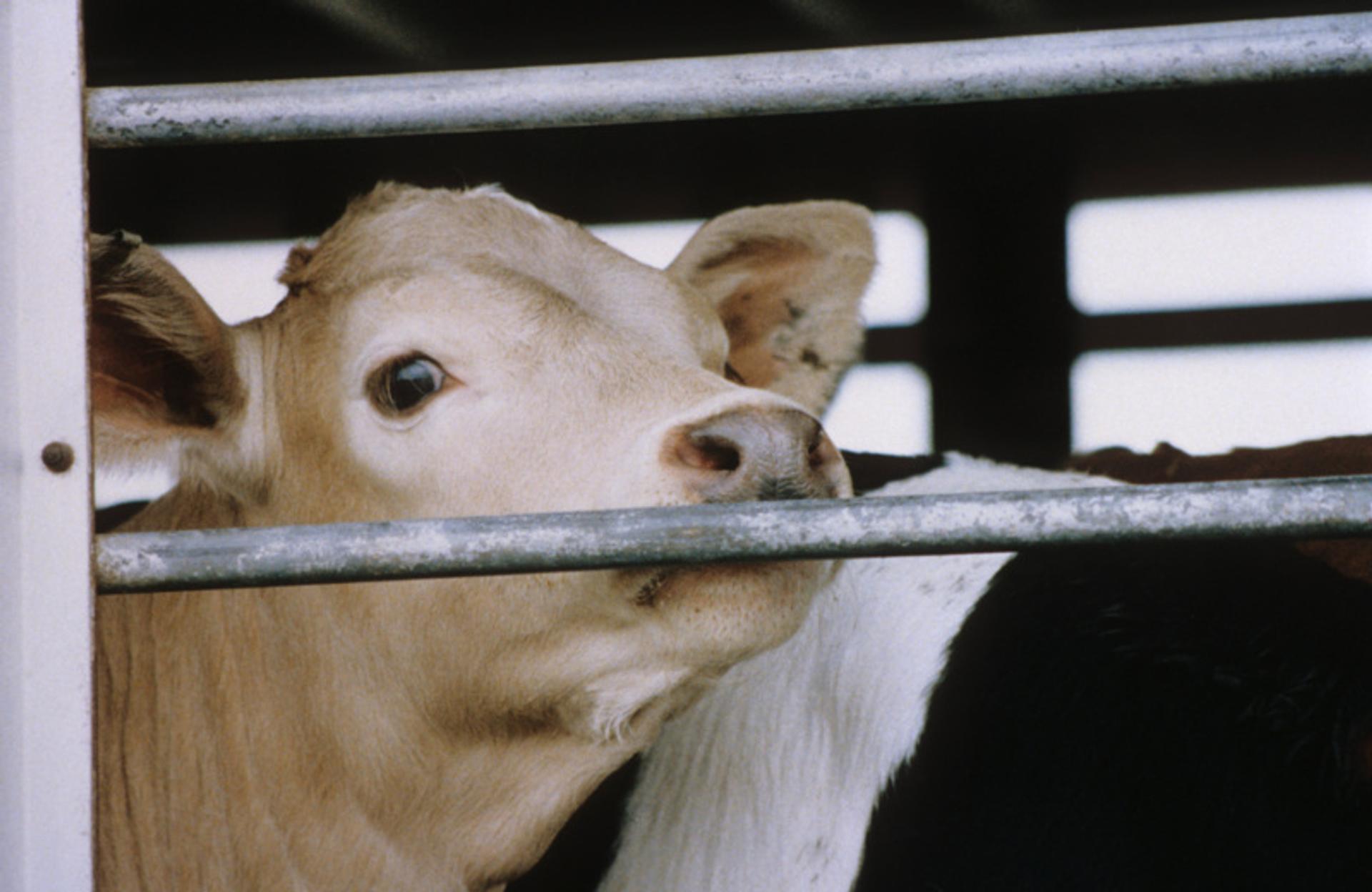Animal transport and slaughter: why welfare standards matter
By Beth Winspear, scientific policy officer, RSPCA

As someone who is passionate about farmed animals and has spent years studying them, I’ll be honest: slaughter is not an easy subject to think about.
Most of us would rather not picture it at all. Yet, if we eat meat, dairy, eggs or fish, it’s a reality we can’t ignore.
Most farmed animals have a life cycle that ends in transport to a slaughterhouse, and what happens during those final hours can have a huge impact on their welfare.
That’s why I believe it’s so important to be open and honest about animal transport and slaughter.
By understanding what happens and how – and the difference higher welfare standards make – we can all make informed choices and support farming systems that treat animals with more care and respect.
Animal welfare during transport
Most farmed animals need to be transported at some point in their life, whether it is to a new farm, a veterinary appointment, or for slaughter. This journey can be stressful for the animals.
Long hours on the road, overcrowding, loud noises or rough handling can cause unnecessary fear and suffering.
I’ve seen firsthand how pigs (who are particularly sensitive to heat) or chickens (who are easily stressed by handling) can react during transport.
Even small details, such as ventilation, careful loading or calm handling can make a huge difference to their experience.
That’s why the RSPCA’s welfare standards are so important.
They make sure that:
- Animals are transported for the shortest time possible (and never for more than eight hours if they live on land)
- Vehicles provide animals enough space and ventilation and the chance to rest
- Animals are always handled calmly and carefully.
These measures ensure animals experience less stress and arrive at their destination in a better physical and mental condition.
Why slaughter standards are important
UK law requires animals to be stunned before slaughter so they’re unconscious and unable to feel any pain.
The only exception is for some meat prepared according to religious rites.
The RSPCA’s welfare standards go further, requiring all animals on RSPCA Assured farms to be stunned before slaughter – with no exceptions.
Stunning methods vary depending on the type of animal – for example, cattle may be stunned with a captive bolt, while hens and chickens are usually killed using gas.
What matters is that stunning is carried out by trained staff who know exactly what they’re doing. This ensures animals are made instantly unconscious, sparing them unnecessary pain or distress.
It’s not an easy thing to think about. But knowing animals are treated with care and respect right up until the end helps ensure their lives aren’t defined by suffering.
Look for the RSPCA Assured label
You might ask: if animals are being slaughtered anyway, why do welfare standards matter? The answer is simple: every moment of an animal’s life matters.
Higher welfare standards ensure animals experience the least possible fear and stress during transport and slaughter. They also give shoppers the power to make choices that reflect their values.
When you buy products with the RSPCA Assured label, you can be confident the animals were transported under strict welfare rules and stunned humanely before slaughter.
That choice makes a real difference. Every purchase supports farmers committed to better welfare and encourages more producers and retailers to follow suit – driving positive change across the food industry.
Working towards better welfare
While slaughter can never be made ‘perfect’, it can – and must – be carried out with compassion and respect.
At the RSPCA, we continue to call for improvements to minimum legal transport and slaughter standards.
Change takes time, but every choice you make as a shopper adds momentum towards a kinder farming system.
By choosing RSPCA Assured products, raising awareness, and supporting organisations pushing for better practices, we can all play a role in ensuring animals are treated with care throughout their lives.
So when you’re shopping, look for the RSPCA Assured label. It’s the easiest way to know that the food you’re buying has come from farms where animals were cared for to higher welfare standards – from birth, to transport, to slaughter.
Frequently asked questions
Why is animal transport stressful?
Transport exposes animals to unfamiliar sounds, movements and environments. Overcrowding, heat or long journeys can increase stress. That’s why our welfare standards focus on short journeys, good ventilation and calm handling.
What are the rules for transporting animals to slaughter?
In the UK, the law sets clear guidelines for the transportation of animals to slaughter. For example, farmed animals must be fit to travel, be handled carefully and given enough space and ventilation during the journey.
The legal time limits depend on the species, but journeys can last for many hours, and in some cases up to 29 hours, including a one-hour break.
We believe these journeys should be kept as short as possible to reduce stress and suffering. That’s why the RSPCA’s welfare standards go further.
Animals covered by the RSPCA Assured scheme and who live on land must never be transported for more than eight hours.
They also have to be loaded and unloaded calmly by trained handlers, and vehicles must be designed to keep them safe, comfortable and well-ventilated throughout.
How can I be sure the meat, dairy, eggs, or fish I buy have come from a higher-welfare farm?
Look for the RSPCA Assured label. It means animals have been cared for to the RSPCA’s higher welfare standards, including during transport and slaughter.
Tuesday 30 September 2025